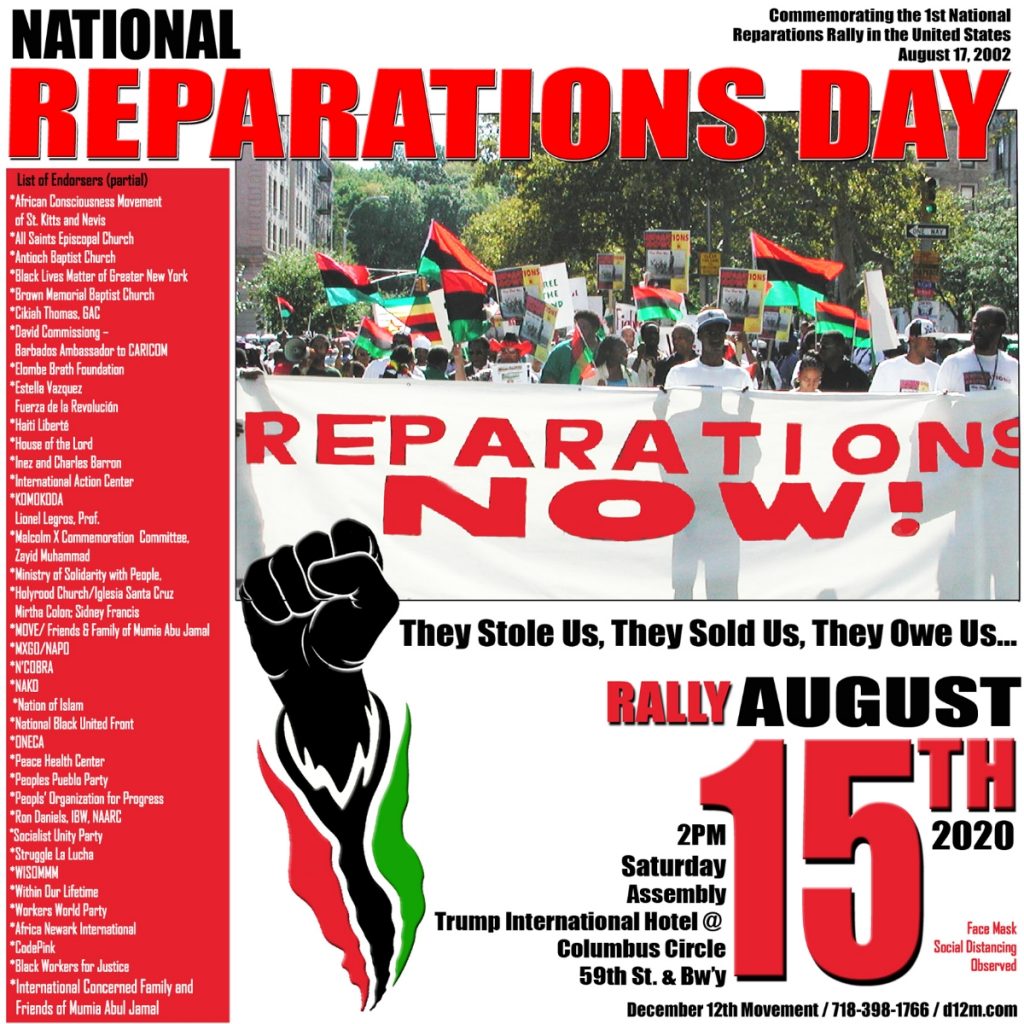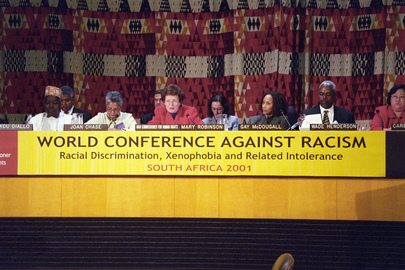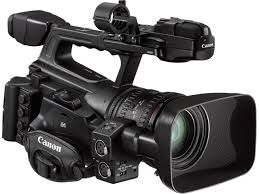National Reparations Day! Reparations Now!
In August we commemorate Black August to honor Black Freedom Fighters and Black Resistance. This year, in addition to lifting up those fighters killed by the state and our political prisoners, we focus on a key demand of our movement, Reparations.

On August 15, thousands across the US, with support from allies in the Caribbean, Africa and Europe will participate in National Reparations Day. The Day was called by the December 12th Movement to recognize two critical events in our just struggle to be made whole from the damage and destruction of slavery. In 2001 at the World Conference Against Racism the delegates declared that the Trans- Atlantic Slave Trade and slavery were crimes against humanity. The second marker was the August 17, 2002 Millions for Reparations National Rally held in Washington, D.C. the 117th anniversary of the birth of Marcus Garvey.

The consensus revealed by rally speakers was that there has been “continuous African oppression from enslavement, through Jim Crow to current day anti-Black structural racism. The crimes had not ended on Juneteenth, 1865. They had just assumed different forms. Black people in the U.S. were still not free.” In regard to the harm done and what is needed to compensate us, the call for the rally argues that “Reparations encompass police terror, criminal injustice, inadequate healthcare, skyrocketing unemployment, inferior housing, education designed for incarceration, lack of wealth, shorter life spans and higher infant mortality rates.” All of that!

In Workers on Arrival, the Black Historian Joe Trotter demonstrates with absolute clarity, that enslaved Africans, from day one, have been used as a source for the extraction of labor and that their exploitation, whether enslaved or free, has been foundational to US capitalism.
Shafeah M’Balia of Black Workers for Justice asks and answers the question why is the demand for reparations relevant to Black Workers?” From 1619 to 1865, captured, then enslaved, African’s free labor built the economic foundation of the US South, the manufacturing North and global capitalism. We are owed! From 1865 to about 1975, the Jim Crow labor system super exploited our labor in the fields, houses and then factories. We are owed! From then until today, Black workers have been kept in the lowest wage jobs but still remain essential to the economy of the US and capitalism. We are Still Owed!
There has been movement on the issue of Reparations, especially in the aftermath of Black rebellions against police murders. A Congressional sub-committee held the first hearing on Reparations in 2019. Local campaigns have emerged calling for reparations. New York City has a bill pending that would create a commission to study reparations based on that City’s long connection to the slave trade, slavery and the subsequent destruction of Black lives, livelihoods and communities. In Evanston, Illinois, the City Council passed a resolution that diverts all revenues from the tax on legal marijuana sales to a Reparations fund which could reach $10 million or more in 10 years. In Asheville, North, Carolina in the wake of the Black Lives Matter uprisings, the City Council passed a resolution apologizing for the City’s role in slavery and support of racist policies and institutions that had harmed the Black community. Their resolution creates a commission to develop plans on how the city will provide resources to address the needs outlined in the resolution. Activists from both communities say that their victories have not resulted in perfect remedies but should be used to inspire Black folks across the country to wage their own local campaigns as well as relate to the national and international movements for Reparations
On August 15 we are asking that people join Reparations activities in your area or start a conversation with family, neighbors, union members and coworkers about the righteous demand. Make plans to study the issue more to learn about the history and how African descendants around the globe and Africans on the continent are organizing to make this a reality. Organize support for local initiatives and House Bill 40 in Congress and organize to make your elected officials support and run pro-reparations candidates.
The Black Workers for Justice proudly participated in the 2001 World Conference Against Racism and the 2002 Millions for Reparations Rally. We are committed to making a contribution to this struggle in the new period that we are in with its dangers and opportunities. Let’s build the United Front!
bwfj.org
The Black Workers for Justice is an organization of Black workers organizing to build the African-American workers movement as a central force in the struggle for Black Liberation and workers power.
8/12/2020



